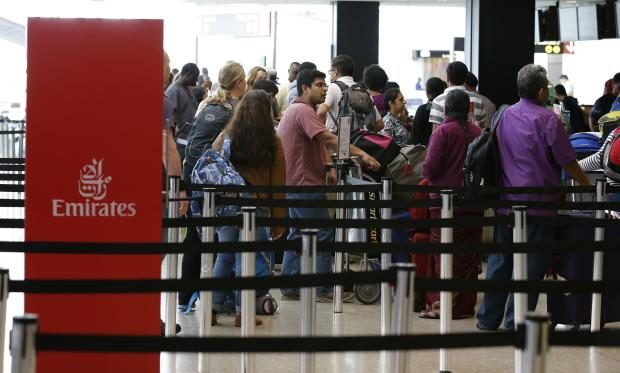
Travelers wait in line near an Emirates ticket counter at the Seattle-Tacoma International Airport, Monday, June 26, 2017, in Seattle. The US Supreme Court said Monday that President Donald Trump’s travel ban on visitors from Iran, Libya, Somalia, Sudan, Syria and Yemen can be enforced if those visitors lack a “credible claim of a bona fide relationship with a person or entity in the United States,” and that justices will hear full arguments in October 2017. (Photo by TED S. WARREN / AP)
WASHINGTON — Even as it allowed a limited version of the Trump administration’s travel ban to take effect for now, the Supreme Court carved out a major exception.
It said Monday that travelers from Iran, Libya, Somalia, Sudan, Syria and Yemen could come to the United States if they have “a bona fide relationship” with a person or entity in the United States.
Immigration advocates and administration officials are likely to disagree about what exactly is a credible claim of a “bona fide relationship.” But the court offered some guidance:
- A foreign national who seeks to enter the United States to live with a family member, such as a spouse or mother-in-law. The court said a “close familial relationship is required.”
- A student who has been admitted to study at an American university.
- A worker who has accepted an offer of employment from an American company.
- A lecturer invited to address an American audience.
The court said the relationship must be “formal, documented and formed in the ordinary course, not for the purpose of evading” the travel ban. That means, for example, that a nonprofit group that advocates for immigration issues may not put foreign nationals on their client lists and then claim they are injured by being excluded./rga